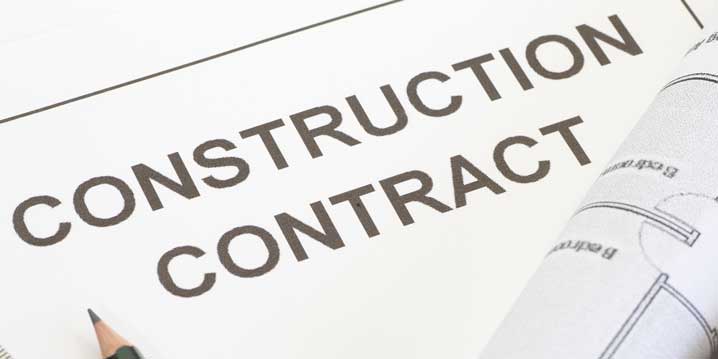When a new construction project is underway, there are contracts that all parties involved must abide by if they agree to them; these contracts are a part of construction law. This contract agreement ensures that the project will be completed in a timely manner and according to the specifications listed in within.
An official construction contract is a legal document binding all parties to perform their assigned duties to the best of their abilities and in their entirety. It also states what is to occur if certain tasks are not carried out the way they’re intended to. One of the ways this can happen is if any work by the contractors, suppliers or sometimes designers was performed in a defective manner.
Do you have legal issues to address regarding your construction contract? Contact us today for a free consultation with our McAllen lawyers.
Contents of a Construction Contract
A construction contract is usually exchanged between a project owner and a contractor or supplier that is providing services for the project. Within the contract, there are sections detailing specific obligations that must be met by each party. To give you an idea, here is a list of some of the section categories in a construction contract agreement:
- Description of Project – This section is a summary of what the project entails.
- Money Contracted and Payment – The first section covers the total amount of money that will be used for the project and money that may be added or deducted from this amount. The payment section details when the contractor will be paid, in what method and the penalties for late payments.
- Construction Activity – There are sections that detail all of the activities that will take place, for how long and how the work will be divided.
- Conditions and Duties – The responsibilities of the owner and contractor are outlined here. Information about liens, penalties, withholdings, arbitration rules, claims and disputes is also found here.
- Construction Laws – All governing laws, liens requirements and other procedures of this kind are found in this section. It also has steps on what to do to terminate an agreement with the contractor.
It is crucial for a construction contract agreement to include very clear descriptions about the services that are being offered, financial terms and termination policies.
Defective Construction Work
Since not all construction projects are entirely error-free, sometimes a project may have small defects, and other times, there may be large-scale defects. Some examples are a building not having a solid enough foundation, failing air conditioning units or using bricks of the wrong color for a building.
If a building has minor defects, these can usually be corrected before it is completed. Although the contractor is usually liable for any defects, if designers like engineers and architects are also at fault, they may also face repercussions.
There are two types of defects that a project owner must be able to distinguish from. Patent defects, for example, are flaws that were observed before the official practical completion of the building or before the defects liability period. Latent defects are all flaws that were found many years after the completion phase.
In the construction contract, there are steps that contractors and suppliers must take if defects are found. The contract lists dates for construction, completion, the defects liability period and the rectification period. It may cost a contractor extra to have materials, goods and work inspected. A work is considered complete when it is entirely free of patent defects. Before this, however, a project owner can insist that all incomplete minor work be completed beforehand. Any defects observed after completion can be addressed during the defects liability period.
How We Can Help You
The McAllen attorneys at Fryer & Hansen, PLLC can assist you with the different legal issues that may arise in the area of construction law. They can represent buyers, sellers and others. To get started on addressing the issues you may be faced with, you can visit our office for a free consultation or call 956.686.6606 for more information.
